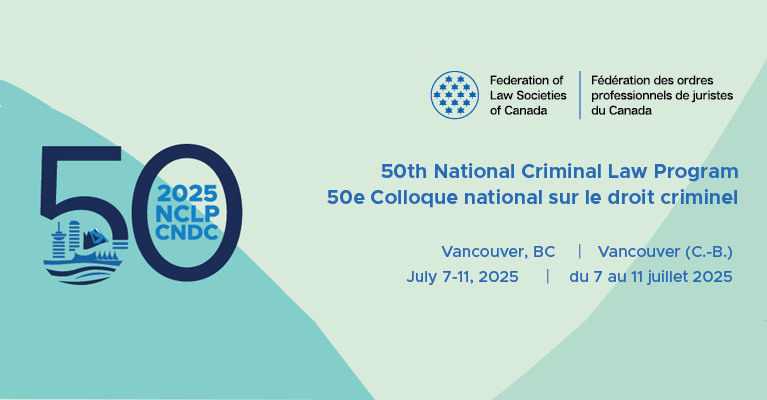As Canada’s administrative law landscape continues to evolve, staying informed on the latest refinements in administrative justice remains essential for tribunal members, decision-makers, and practitioners...
The reality is that many legal departments still lean on outdated methods – spreadsheets, shared drives, and manual checklists – to manage increasingly complex workflows. While these tools may have sufficed...
As Canada’s digital economy continues to evolve, privacy law is entering a critical period of transition. With the collapse of Bill C-27 in 2024, early 2025 has left legal professionals navigating a fragmented...
In a recent webinar hosted by LexisNexis Canada, a panel of esteemed legal experts gathered to discuss the evolving landscape of international trade and its impact on intellectual property (IP). Featuring...
LexisNexis Canada is a proud sponsor of the 2025 National Criminal Law Program, Canada’s pre-eminent continuing legal education program in the field of criminal law. Speakers include leading judges, litigators...

LexisNexis Canada is a proud sponsor of the 2025 National Criminal Law Program, Canada’s pre-eminent continuing legal education program in the field of criminal law. Speakers include leading judges, litigators, and legal scholars from across Canada. Click here to learn more and register.
Why showing up still beats logging in—especially for legal professionals
In an age where virtually everything can be streamed, downloaded, or Zoomed, it’s easy to assume the future of professional learning lies entirely online. But for legal professionals, the value of gathering in person is not just tradition—it’s evidence-based practice. From deeper engagement and richer learning to much-needed social connection, in-person legal education continues to offer meaningful benefits that virtual formats can’t fully replicate.
Here’s why attending live, in-person legal programs such as the National Criminal Law Program (NCLP) still matters—perhaps more than ever.
1. It Boosts Learning, Engagement, and Understanding
In-person instruction leads to higher engagement, deeper understanding, and better learning outcomes than online formats. A 2022 study published in the Proceedings of the National Academy of Sciences found that 81% of students reported better comprehension and 73% reported longer concentration spans in face-to-face classes compared to virtual ones. Students also rated in-person communication and interaction as significantly more effective.
2. You Get Access to Peers and Mentors Who Reignite Your Practice
One of the greatest intangible benefits of in-person education is the chance to learn from your peers—and to remember why you joined the profession in the first place. Mentorship and informal conversations provide real-world strategies, support, and encouragement that no slide deck can deliver.
“Networking with other lawyers at meals and breaks gave me a chance to hear how others approach challenges. It was as useful as the panels.” – 2024 NCLP attendee
“The opportunity for networking was incredible. As a student/volunteer I had the chance to meet amazing people that I had only read about on paper, which was more than enough for me to enjoy the experience.” – 2023 NCLP attendee
3. It Builds Your Professional Community (and Career)
In-person events allow for spontaneous conversations, relationship-building, and long-term connections that virtual platforms simply can’t replicate. These connections are not just social—they often lead to referrals, collaborations, and career development opportunities.
Studies in workforce development and mentorship have consistently shown that professional relationships formed in person are more enduring and lead to stronger outcomes for job satisfaction and advancement.
4. You Get Immediate Access to Support and Resources
Being physically present at a conference or seminar means direct, real-time access to instructors, panelists, and fellow attendees. This immediacy allows for clarification, deeper discussion, and more collaborative problem-solving—factors that enhance both the learning experience and real-world application.
5. You’ll Actually Pay Attention (Because Multitasking is Limited)
Multitasking feels productive, but research shows otherwise. According to some cognitive psychologists, humans are neurologically poor at multitasking—especially when tasks require critical thinking. A Stanford University found that multitasking during cognitive tasks can lower IQ temporarily and significantly impair performance—suggesting that learners engaging in online education while juggling emails and other tabs may be at a serious disadvantage.
In-person learning environments naturally minimize distractions, allowing for better concentration and comprehension.
6. You’ll Retain More Because You’ve Put in the Effort
Educational psychologists call this the “generation effect” and “effortful processing”—the idea that learners remember more when they actively work to learn. Attending an event in person (booking travel, blocking time, being present) increases personal investment, which in turn improves retention.
According to the ROI Institute, in-person learning fosters practical skill development, peer engagement, and long-term memory through higher emotional and cognitive involvement.
7. It’s Good for Your Mental Health
Social connection isn’t just a nice-to-have—it’s essential to well-being. In 2023, the U.S. Surgeon General declared loneliness and social isolation a public health epidemic, linking it to increased risk of heart disease, stroke, and depression. The advisory emphasized the importance of in-person social connections as a public health imperative.
An Australian study published in Ingenta Connect found that attending face-to-face events significantly enhanced feelings of social connectedness, while virtual events had no notable impact on reducing loneliness. In short: being in the room matters.
Citations
1. Oducado, R.M.F. et al. (2022). Remote and In-Person Learning: Utility Versus Social Experience. Proceedings of the National Academy of Sciences. PMC9769479
2. HHS Office of the Surgeon General (2023). Our Epidemic of Loneliness and Isolation. hhs.gov
3. ROI Institute. (2023). The ROI of Showing Up: Why In-Person Learning Is Most Effective. roiinstitute.net
4. Gorlick, A. (2009, August 24). Media multitaskers pay mental price, Stanford study shows. Stanford News.
5. Event Attendance and Social Connectedness Study. Ingenta Connect. Link to abstract

